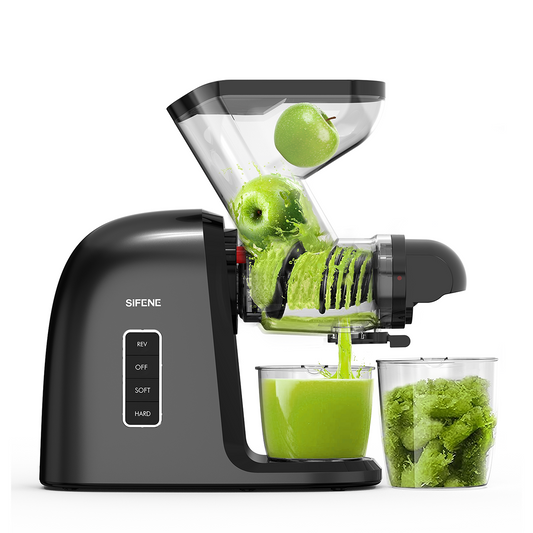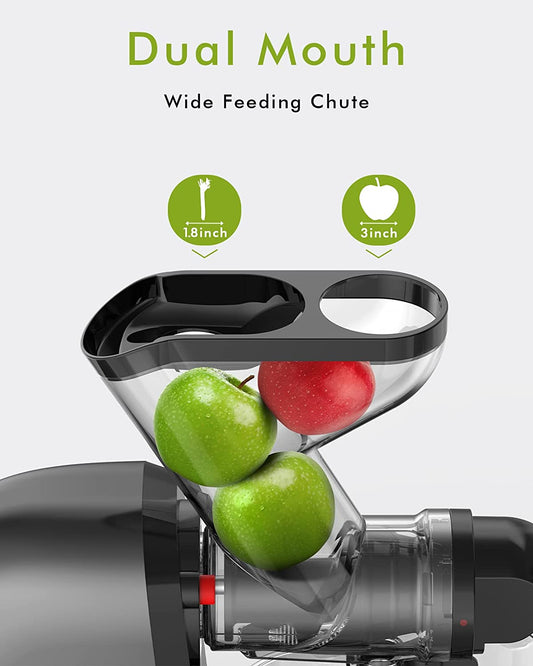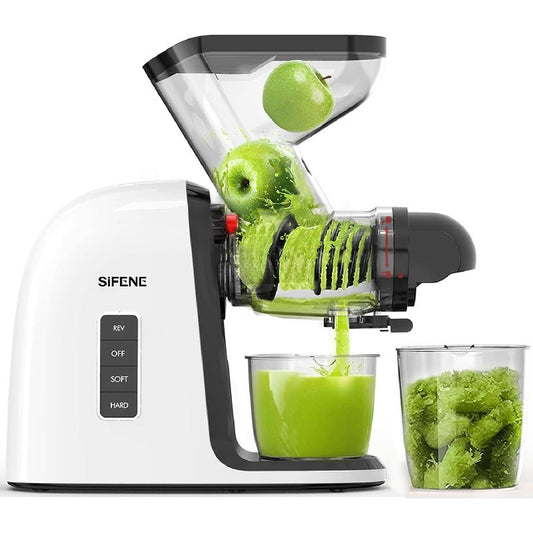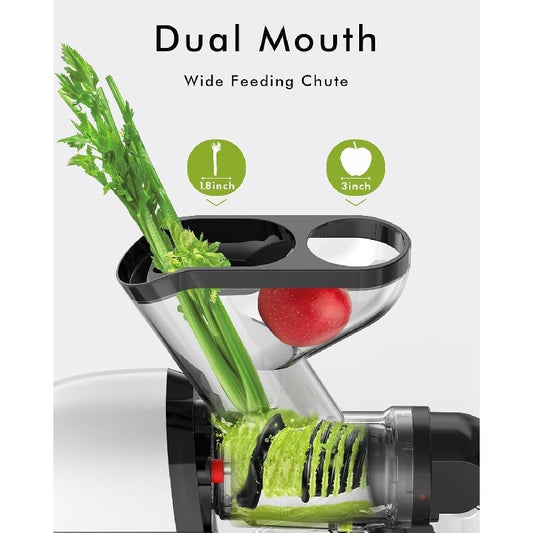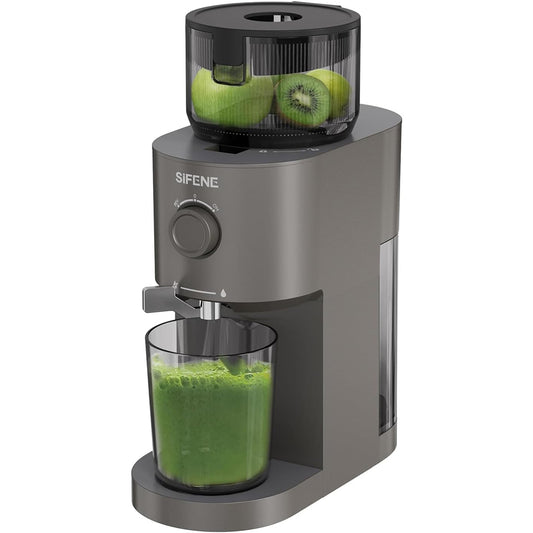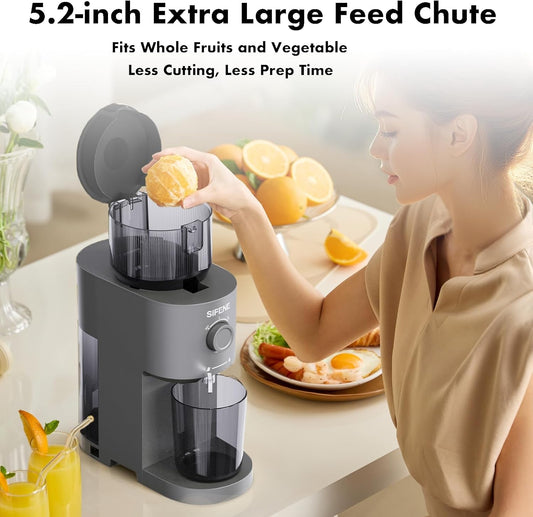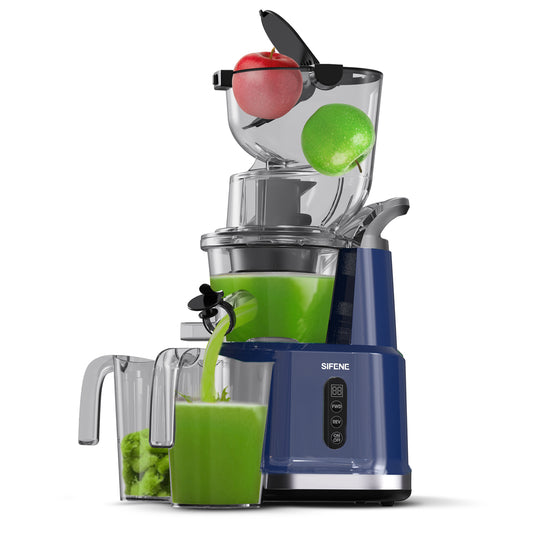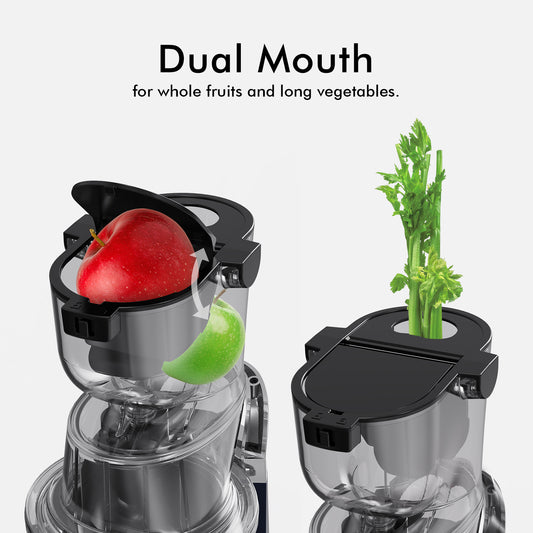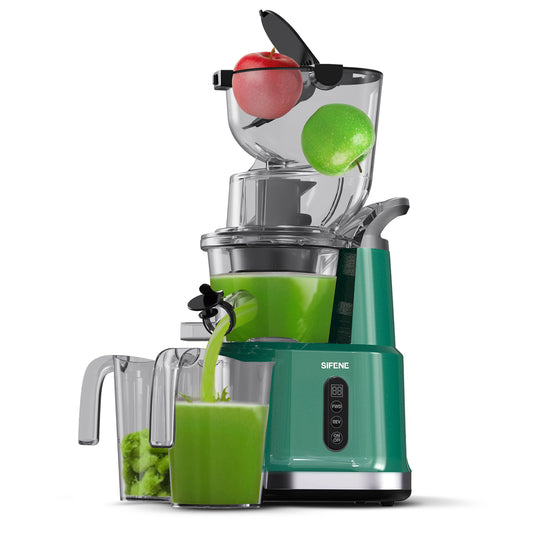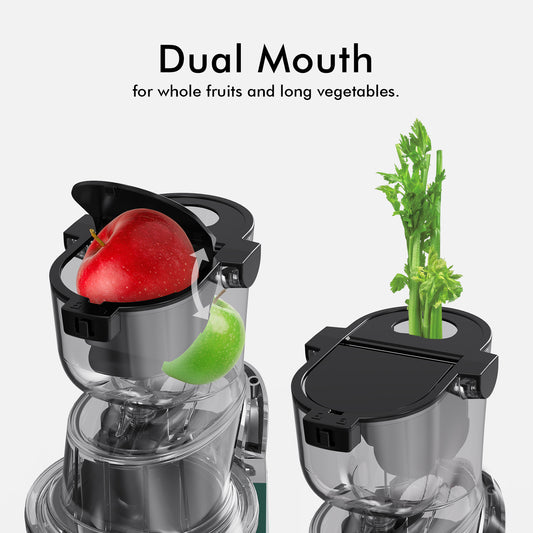1) What fruits, vegetables and greens do you plan to juice?
Try and estimate broadly what percentage of each of the following you plan to juice – Soft Fruits, Citrus Fruits, Harder Fruits, Vegetables and Leafy Greens. Given the amazing variety of produce mother nature provides unfortunately no juicer is designed to excel at all of the above, so it’s important to broadly identify what you primarily plan on juicing as this will heavily influence the best juicer for your needs. For example for me I know that I juice approximately 10% soft fruits, 25% leafy greens and 65% hard vegetables and fruits, as a result a masticating juicer is most suited to my needs.
2) Time to make a juice - what quantity of juice per day? 1 glass, 1 litre, 3 litres?
How many times per day or week do you plan to juice and what quantities of juice will you need to make? Is it just for you, you and your partner or your entire family? Is the time it takes to make a juice a major concern? Masticating juicers while producing the highest quality juice are much slower than high speed centrifugal juicers, if you need to make a lot of juice quickly and you are willing to sacrifice a little on quality then centrifugal juicers are a good option, however if juice quality is your primary concern and you plan to juice mainly vegetables and leafy greens then a masticating juicer is by far the best choice, the bad news is that a masticating juicer takes 60-100% more time to make a juice compared to a centrifugal juicer. For example when you are all prepared and ready to juice it will take a masticating juicer about 5-7 mins to make a 500ml of juice, while it would take a centrifugal juicer only 3-4 mins (however you will have a lot more waste!)
3) High juice yield & dry pulp
Juice yield is a critical way to measure the quality and effectiveness of a juicer. If you look online you will see many video comparisons showing how effective different juicers are at juicing the same quantities of produce. Typically as the Juice yield increases so does the price.
4) Your Budget
Like most things in life you get what you pay for , same applies when it comes to juicers. Typically as the price goes up so does the juicer performance. With a higher price comes higher juice yield, more features, an easier to clean product, better warranty and in many cases a more ascetically appealing product. If you plan to make juicing a key part of your diet and health regime we recommend not skimping on the price, many people start off juicing by buying a cheap centrifugal juicer for less than $100. This is false economy; you may quickly become disheartened with the effort involved in assembling the juicer, the large amount of waste and indeed poor quality of juice and the juicer and in turn the juicer becomes another kitchen gadget gathering dust or worse breaks down within the first year. If you are willing to spend £200+ you will get a high quality juicer that should last you at least 10 years.
5) Warranty
Juicers come with varying warranties, you will see that most high speed centrifugal juicers come with only 1-5 year warranties as the motors can burn out, on the other had masticating juicers come with substantial 10 year plus domestic warranties on the motor and 5 year plus warranties on the parts. Ensure to check where warranties are serviced and what the warranties do and do not cover.
Featured collection
-
Dual Mouth Masticating Juicer Max Gray
Regular price $129.99 USDRegular priceUnit price per$99.99 USDSale price $129.99 USD -
Dual Mouth Masticating Juicer Max White
Regular price $129.99 USDRegular priceUnit price per$99.99 USDSale price $129.99 USD -
Whole Fruit Cold Press Juicer Large Feed Chute Gray
Regular price $129.99 USDRegular priceUnit price per$149.99 USDSale price $129.99 USDSale -
Whole Fruit Cold Press Juicer Large Dual Mouth Blue
Regular price $129.99 USDRegular priceUnit price per$199.99 USDSale price $129.99 USDSale -
Whole Fruit Cold Press Juicer Large Dual Mouth Green
Regular price $129.99 USDRegular priceUnit price per$199.99 USDSale price $129.99 USDSale

